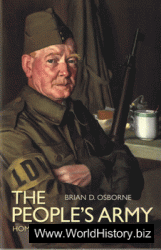The revolutionary era brought challenges and opportunities to Quakers—members of the Religious Society of Friends founded in England in 1652. Advocating pacifism and withdrawal from politics, Quakers, who first came to British North America in 1656, found themselves in an awkward position during the Revolutionary War (1775-83), when the internecine nature of the conflict confronted every American with difficult choices. If their principles left Quakers susceptible to charges of disloyalty and even treason to the new United States, those same principles also placed them in the forefront of the reform movements of the age, especially ANTISLAVERY and abolition.
Quakers in North America faced a crisis in the 1750s during the French and Indian War (1754-63). Since the beginning of the colony of Pennsylvania in the late 17th century, Quakers had played a prominent—even dominant—role in local politics. Until 1754 the Quakers had managed to hold on to their pacifist beliefs and limited their colony’s participation in the wars between France and Great Britain. They could do so in part because of their willingness to make some compromises concerning their pacifism and because of the Quakers’ long history of peaceful relations with Native Americans. The conflict that began on the Pennsylvania frontier in 1754, however, was different. Indian attacks led to demands by back-country settlers that some action be taken by the colonial government. Unable to control the colony as they once had, and confronted with frontier violence, many Quakers decided that the only way for them to maintain their beliefs was by withdrawing from politics and concentrating their efforts on reforming society.
The decision to limit their political involvement left the Quakers in an awkward position in the 1760s and 1770s. During the resistance movement (1764-75) many Quakers objected to British policies but offered only muted protests. Some Quakers in Pennsylvania, who continued to participate in colonial politics in a limited way, did not want to complain too loudly about imperial policy because they did not want to alienate the king in the hope that the British would do away with the proprietary government and make Pennsylvania a Crown colony. For many other Quakers, noninvolvement in the controversy also stemmed from the movement begun in the 1750s to reform the Society of Friends, step away from political discourse, and focus efforts on aiding others through private means. While some Quakers participated in nonimportation movements, the sect as a whole sought to discourage its members from participating in committees of correspondence and any extralegal body that opposed royal government.
The onset of war divided the Quakers and left the reformists exposed to charges of being Loyalists in sympathy and action. The Philadelphia Yearly Meeting disowned almost 1,000 members for joining militias, serving in local committees, and actively supporting the revolutionary cause. By the end of the war, a separate group of expelled former Quakers organized themselves into the Free Quakers and unsuccessfully sought control of Society of Friends meetinghouses. Those who wanted to remain neutral, or had Loyalist leanings, found themselves persecuted. Arguing that the payment of taxes to support the war or participating in the revolutionary government in any way was a violation of their pacifism, Quakers found themselves distrusted by many. Revolutionary committees levied heavy fines on pacifist Quakers, and when they did not pay, seized Quaker property by force. When Quakers crossed enemy lines for business or to attend their quarterly and yearly meetings, they provoked further animosity. Likewise, the Quakers sought to live under any government that was in place. If a British army occupied a city, the Quakers went about their business; if the Continental army occupied the same location, the Quakers attempted to live as they had under the British. In a brutal and long war, neutrality became increasingly difficult to maintain. In 1777 and 1778 the revolutionary government of Pennsylvania arrested 17 leading Quakers and sent them to harsh imprisonment in Winchester, Virginia. Two elderly and infirm Quakers died during the incarceration; a third died a year later, having never fully recovered from his confinement. Besides loss of civil rights, Quakers also occasionally suffered mob harassment when crowds broke the windows of Quaker property and threatened further action.
If some Quakers suffered during the Revolutionary War, they also demonstrated an increasing commitment to reform. Since the 1750s Quakers had steadily moved against slavery. By 1774 Philadelphia Quakers resolved to disown any member who refused to manumit his slaves. Quakers helped to organize manumission societies and supported legal action by state governments against slavery. In the 1790s Quakers petitioned Congress to end the slave trade and were in the forefront of the movement to abolish slavery. Quakers also reached out to Native Americans, sending missionaries to groups such as the Seneca in the 1780s and 1790s. Quakers became active in other areas of reform, including supporting changes in punishment of criminals and seeking ways to help the poor. Although Quakers in the early republic no longer played a prominent role in politics, their involvement in philanthropy helped to mold the future course of humanitarianism in the United States.
Further reading: Jack D. Marietta, The Reformation of American Quakerism, 1748-1783 (Philadelphia: University of Pennsylvania Press, 1984).




 World History
World History









